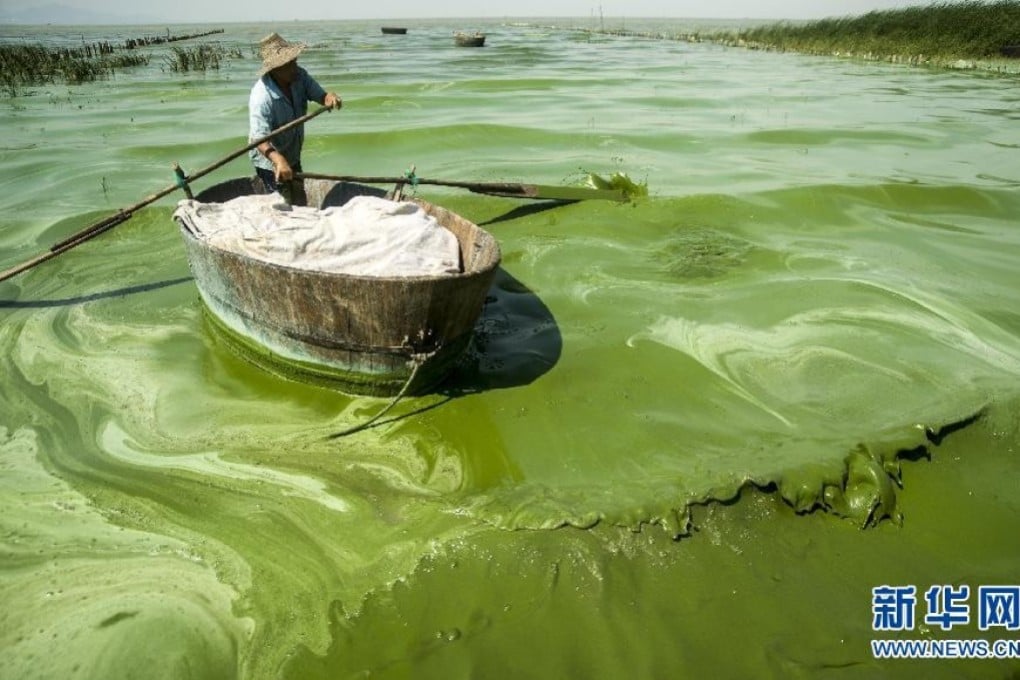Scientists find way to stop algae poisoning China’s dirtiest freshwater lake
- Lake Chao is ranked bottom by the central government for water quality
- Discovery of virus could allow algae to be controlled

Scientists working at China’s most polluted freshwater lake have discovered a virus that could be used to tame the algae that poisons it each year.
Lake Chao, in Anhui province in the country’s southeast, lies at the very bottom of the central government’s rankings for water quality, partly because of algae outbreaks there. But researchers from the University of Science and Technology of China have found a previously unknown algae-eating virus that could combat the outbreaks.
Named Mic1, the virus has an oversized head and elongated tail, a body structure resembling human sperm. It can infect, suppress or kill blue-green algae, the most abundant photosynthetic micro-organism on Earth, according to the researchers’ paper in the latest issue of the journal Structure.
Using the tail as an anchor, the virus can inject its DNA into a blue-green algae cell with relative ease. The virus will then multiply before tearing the host apart and moving on to other cells.

But despite the virus’ presence in Lake Chao – the fifth largest lake in China – an algae bloom nearly every summer kills fish, poisons drinking water and produces a pungent smell familiar to the millions of people living nearby.